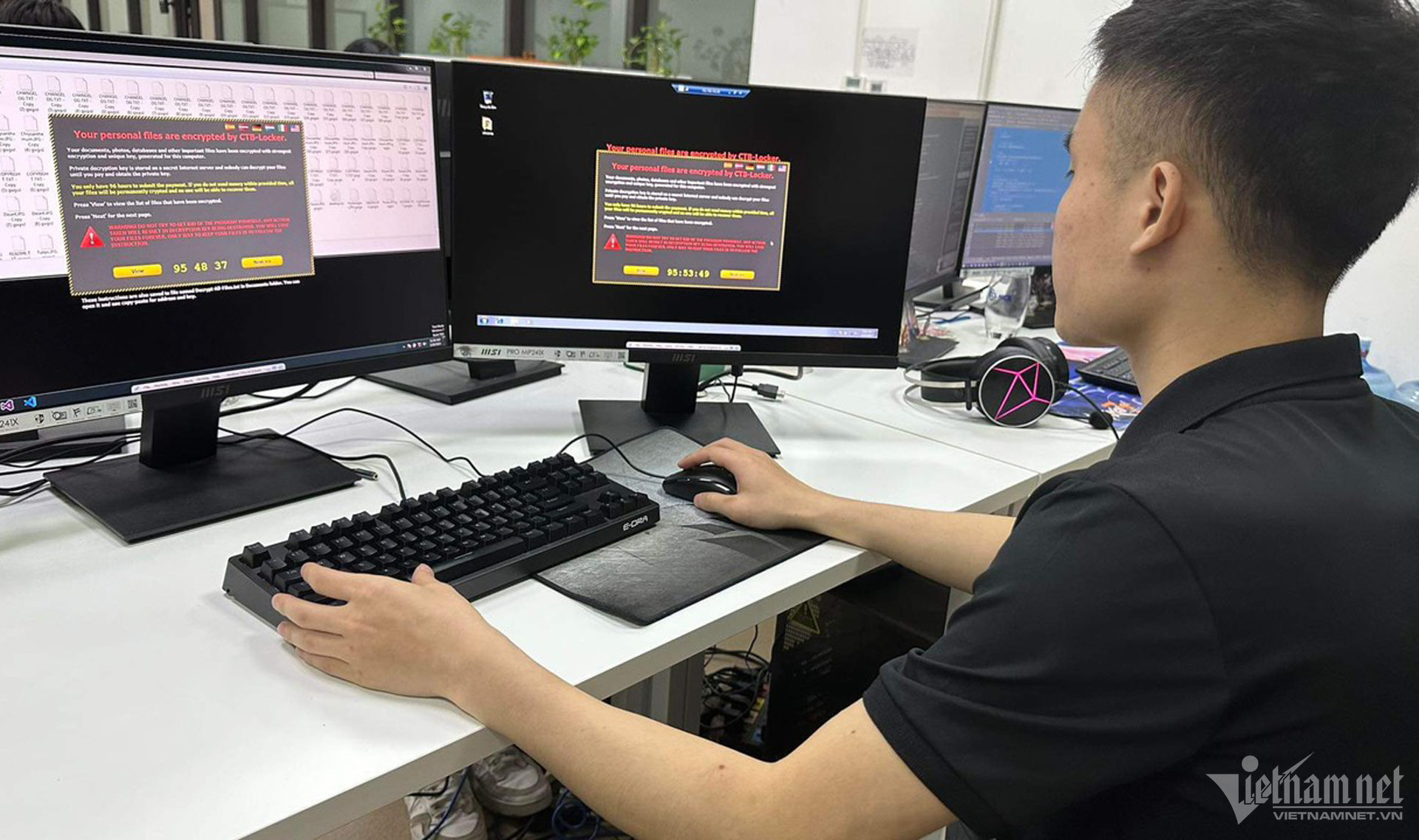
Recent data indicates a sharp six-fold increase in ransomware attacks targeting organizations across various sectors in the country, prompting urgent calls for enhanced cybersecurity measures.
According to the latest report from Fortinet, a leading network security solution provider, there has been a notable surge in deliberate ransomware and data-wiping malware assaults, with industrial and operational technology sectors bearing the brunt of these attacks.
Alarmingly, Fortinet's findings reveal that a substantial 44% of ransomware and wiper malware samples in the latter half of 2023 were specifically tailored to target industrial sectors.
Vietnam, like many nations globally, has not been immune to this burgeoning cybersecurity menace. Ransomware attacks have intensified across critical sectors such as energy, telecommunications, and logistics.
Mr. Pham Thai Son, Deputy Director of the National Cyber Security Monitoring Center, disclosed during a recent seminar on "Prevention of Ransomware Attacks" that a staggering 13,000 ransomware-related incidents were recorded within the country's information systems in the initial months of 2024 alone.
Identifying multiple threat actors behind these attacks, including prominent groups like LockBit, Blackcat, and Mallox, the Department of Information Security has underscored the urgency of understanding and mitigating these evolving threats. A comprehensive analysis report on LockBit 3.0, released by the National Cyber Security Monitoring Center in mid-April, sheds light on the sophisticated tactics employed by these cybercriminal syndicates and the grave implications of their actions.
Addressing stakeholders at the VNNIC Internet Conference 2024, Mr. Trinh Hoai Nam, Product Director of Viettel Cyber Security, emphasized the dual challenges posed by ransomware and Distributed Denial of Service (DDoS) attacks in Vietnam's cyberspace. He highlighted the evolving nature of ransomware threats, with increasingly sophisticated techniques causing significant disruptions and financial losses to affected entities.
According to data gleaned from Viettel Cyber Security's monitoring system, ransomware incidents in Vietnam witnessed a substantial surge last year, with a pronounced uptick observed in the first quarter of 2024 alone. LockBit remains a prevalent and persistent threat, with its latest variant exacerbating the cybersecurity landscape.
To combat this escalating menace, the Department of Information Security advocates for proactive measures, including robust data backup protocols, diligent patch management, and stringent access controls. Early detection, incident response planning, and network segmentation are emphasized as pivotal components of a comprehensive defense strategy.
Moreover, organizations are urged to invest in long-term risk mitigation strategies such as the deployment of Security Operations Centers (SOCs) and the utilization of Threat Intelligence services to fortify their cyber resilience.
In response to the mounting threat posed by LockBit and other ransomware strains, securing Vietnam's digital ecosystem requires concerted efforts and steadfast commitment to proactive cybersecurity measures across all sectors.
Trong Dat